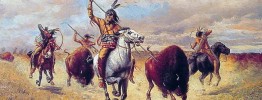Roger Koppl
Quotes From
Big Players and the Economic Theory of Expectations (2002)
- Cognitive expectations are our ideas about the future. They are “subjective.” The “long-term expectations” of the General Theory are cognitive expectations. In this meaning, the economic concept of “expectation” is about the same as the common-sense meaning of “expectation.” Cognitive expectations emerge from processes of learning. Acognitive expectations [on the other hand] are implicit in our actions. They are “objective.” Rational expectations are acognitive, at least in some interpretations. In this meaning, the economic concept of “expectation” differs from the common-sense meaning of “expectation.” Acognitive expectations emerge from natural selection.#
- The presence of Big Players tends to produce “Keynesian” behavior in financial markets. This behavior includes herding. Stability and atomism encourages a more “neoclassical” result.#
- Big Players divert each trader’s attention from underlying conditions of supply and demand towards the personality of the Big Player. It is hard to know what a Big Player will do. Market participants must base their expectations on a picture of the market in which a highly non-anonymous ideal type is prominent. But this picture is always more or less dubious. Thus, the overall reliability and prescience of economic expectations is reduced.#
- Methodological dualism is not the doctrine that the social sciences are “deductive” and the natural sciences “inductive.” It is the doctrine that “understanding” is a method of the social sciences, but not of the natural sciences.#
- To say that we “apply” an ideal type to our experience implies that we have a conscious experience and then bring in an ideal type. But in order that the experience be conscious, it must already be interpreted and thus classified by means of an ideal type.#
- The interpretive sociologist uses ideal types of varying degrees of anonymity. What we call either “history” or “applied economics” entails the use of relatively concrete ideal types. “Theory” uses more anonymous types. The distinction, therefore, between theory and history is not the categorical one Mises imagined. We use the term “theory” for arguments and explanations that use only relatively anonymous types; we use the terms “history” and “applied theory” when relatively concrete types are used.#
- In Mises’ methodology, only the most completely anonymous ideal types are admitted into economic theory. But the sorts of predictions Mises thought economics to give require ideal types that are not completely anonymous. They are highly anonymous, but not perfectly anonymous. With Schutz we can and should admit such imperfectly anonymous types into economic theory.#
- Agents with bounded rationality are guided by general rules and rules of thumb. They have, nevertheless, some cunning and the disposition to seek out and follow their incentives. Natural selection can turn this cunning disposition into a good approximation of rational maximizing, but only in the right institutional setting.#
“Does The Sensory Order Have a Useful Economic Future?” (2003)
- The epistemological uncertainty in Hayek’s theory is not simply (and in some sense, trivially) a result of uni-directional calendar time, as emphasized by Shackle and Lachmann, but also a result of abstract and inherent constraints on what can be known cognitively.#
